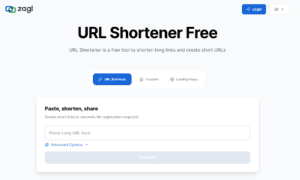In the dynamic and competitive realm of architectural practice, efficiency and collaboration are paramount to achieving success. A vital component in reaching these objectives is the utilization of effective project management software, specifically designed for architecture firms.
What Are the Benefits of Using Architecture Project Management Software?
Utilizing specialized project management software in the field of architecture can significantly enhance efficiency, streamline communication, and ultimately lead to more successful project outcomes. This is achieved by providing a centralized platform for managing all aspects of architectural projects, from design and planning to construction and documentation.
With Building Information Modeling (BIM) integration capabilities, many project management tools allow architects to collaborate on designs in real time, reducing potential errors and ensuring that all team members are working with up-to-date information. Additionally, these systems facilitate seamless communication between stakeholders involved in the project, such as clients, contractors, and suppliers.
Advanced features offered by modern architecture project management software further improve the overall workflow by automating repetitive tasks like tracking time spent on various activities or generating reports based on financial data. This enables architects to focus their efforts primarily on creative problem-solving while delegating administrative responsibilities to an intelligent system.
Furthermore, robust documentation tools ensure that all relevant files are organized and easily accessible throughout the entire process – from initial concept development through final completion – contributing positively towards efficient collaboration among team members.
By leveraging these comprehensive solutions tailored specifically for architectural practices, professionals can expect improved productivity levels accompanied by reduced chances of costly mistakes arising due to miscommunication or disorganized processes.
How Do You Choose the Right Architecture Project Management Software Program for Your Firm?
Selecting the appropriate architecture project management software for your firm involves careful assessment of your organization’s needs, processes, and desired outcomes to ensure the chosen solution enhances efficiency and fosters teamwork. Factors to consider include ease of use, compatibility with existing systems, scalability as your firm grows, and available integrations with other tools often employed in architectural practices. Additionally, it is essential to examine how well a potential software addresses core project management tasks such as planning, scheduling, resource allocation, communication, and collaboration.
When evaluating different architecture project management software programs, keep in mind the following considerations:
- CAD and 3D modeling capabilities: Ensure that the software supports popular CAD applications like AutoCAD or Revit for seamless integration into your design workflow.
- Construction management features: Look for tools that facilitate coordination between architects and construction teams by providing shared access to drawings, specifications, and schedules.
- Planning and scheduling functions: A robust platform should offer dynamic Gantt charts or other visual representations of project timelines along with task assignment options.
- Collaborative environment: Opt for solutions that promote effective communication within teams through integrated messaging systems or file-sharing options.
By carefully weighing these factors during your selection process, you can identify an architecture project management software that best aligns with your firm’s unique requirements – ultimately streamlining operations while fostering a collaborative work environment conducive to success.
What Are the Most Popular Architecture Project Management Software Programs?
Examining the array of popular architecture project management software programs available in the market can provide valuable insights into their features, capabilities, and suitability for meeting your firm’s unique needs and objectives. Among the top contenders are Productive, Deltek Ajera, Smartsheet, BQE Core, Asana, Notion, Microsoft Project, Trello, Wrike, Airtable, ClickUp, Easy Projects, Freedcamp, Bitrix 24, and Monograph.
These solutions offer a variety of tools and functionalities that cater to different aspects of architectural project management such as resource management; time tracking; budgeting; collaboration; invoicing; planning; scheduling and reporting.
Each software program has its own strengths and weaknesses which should be carefully considered before making a decision. For instance: Productive is an end-to-end agency management system that replaces multiple tools and spreadsheets with seamless integrations like Slack or Jira while Monograph is designed specifically for architects offering project planning alongside financial management. Smartsheet offers flexibility through customizable sheets but may have a steeper learning curve compared to other platforms like Asana or Wrike which are more user-friendly.
On the other hand: Autodesk Revit AutoCAD SketchUp ArchiCAD are popular design-focused tools typically used in tandem with these project management systems to enhance overall workflow efficiency coordination between team members ultimately ensuring successful completion of architectural projects within specified timelines and budgets constraints without compromising quality standards expectations stakeholders clients alike. By integrating advanced tools and methodologies, these project management systems facilitate seamless communication, foster collaboration, streamline processes, and enable real-time monitoring and evaluation of project progress.
This empowers architects, designers, and other team members to make informed decisions, prioritize tasks, allocate resources effectively, and swiftly adapt to changes or challenges that may arise during the project lifecycle. Consequently, the team is able to deliver innovative, sustainable, and high-quality architectural solutions that not only meet but exceed the expectations of stakeholders and clients alike, while also driving business growth and long-term success.
What Kind of Training and Support Is Provided by the Software Providers for New Users or Teams Implementing the Software?
Training and support for new users or teams implementing architecture project management software typically vary depending on the provider. Many software providers offer a range of resources, including video tutorials, webinars, written documentation, online community forums, and direct customer support through email or chat.
Some may also provide personalized onboarding services and dedicated account managers to assist with implementation and ongoing support. It is essential for potential users to evaluate the availability and quality of training and support resources when selecting an appropriate project management software solution in order to ensure successful adoption within their organization.
How Does Architecture Project Management Software Handle Data Security and Privacy, Especially When Dealing With Sensitive Client Information?
Data security and privacy in architecture project management software are of utmost importance, particularly when handling sensitive client information. To ensure the protection of data and maintain users’ trust, these software solutions often implement rigorous security measures such as:
- Encryption protocols for data transmission and storage
- Robust access controls to limit unauthorized access
- Regular security audits to identify potential vulnerabilities
- Compliance with relevant industry standards such as GDPR and ISO 27001
Additionally, many providers offer features like two-factor authentication for user accounts to further enhance the safeguarding of sensitive data within their systems.
Software Solutions for Architectural Projects
The utilization of architecture project management software has proven to be a vital component in ensuring the success of architectural firms. These resources are invaluable because of how they streamline operations, improve teamwork, and provide previously hidden information about how projects are doing.
Keep in mind that the agency’s unique requirements and goals must be carefully considered before settling on a project management system. Nonetheless, if architectural businesses use these cutting-edge tools, they will be able to complete their projects faster and more effectively.



































